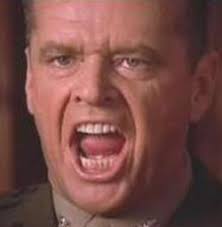PoliticalChic
Diamond Member
As we consider The First Hundred Days of our Transformational President, the most outstanding feature of the period is how little change he has brought., and how much of the policies of the former administration he has continued.
1. Robert Gates kept on as defense secretary
2. Policy for dealing with the financial crisis similar to Bush policy: infusing money into failing institutions.
3. The Bush position, that we are free to maintain bilateral relations with any country, including the ability to extend NATO membership, has been reaffirmed by Obama.
4. Ballistic Missile Defense in Poland is still a policy of Washington.
5. US-Russian relations are about were they were under Bush
6. In Iraq, Obama has maintained the Petraeus strategy. And he plans to extend it to Afghanistan.
But there are differences, and here we can make our judgments.
1. Hillary Clinton, Richard Holbrooke, and George Mitchell in key positions. All are insiders.
2. In addition to the Bush plan for the financial crisis, Obama has added a stimulus.
Anna Schwartz at the National Bureau of Economic Research with Milton Friedman, she wrote A Monetary History of the United States, a book that forever changed our knowledge of economics and the way that governments operate. Bernanke is right about the past, Schwartz says, but he is fighting the wrong war today; the present crisis has nothing to do with a lack of liquidity. President Obamas stimulus is similarly irrelevant, she believes, since the crisis also has nothing to do with a lack of demand or investment. The credit crunch, which is the recessions actual cause, comes only from a lack of trust, argues Schwartz. Lenders arent lending because they dont know who is solvent, and they cant know who is solvent because portfolios remain full of mortgage-backed securities and other toxic assets.
Monetarism Defiant by Guy Sorman, City Journal Spring 2009
3. Obama campaign argued that the Bush Administration alienated our European allies, and his approach would yield a more forthcoming response. The result of his G20 trip was zero. The French and Germans were as they were with Bush.
4. Obama tried to open the door with Iran by indicating that he would talk without demanding a stop in their nuclear program. The Iranians rejected the opening.
5. Turkey is the biggest difference, in that he made several overtures including a presidential visit, as well as putting US anti-piracy vessels under Turkish command. If the strategy bears fruit, it will be a major foreign policy coup.
As far as perception, if not change or even success, Obama is still strong, with a 69% approval, average for Presidents at this point (Washington Post).
This is not a trivial achievement. There are campaign promises, there is reality and there is public perception. All presidents must move from campaigning to governing; extremely skilled presidents manage the shift without appearing duplicitous. At least in the European case, Obama has managed the shift without suffering political damage. His core supporters appear prepared to support him independent of results. And that is an important foundation for effective governance. (Stratfor.com)
1. Robert Gates kept on as defense secretary
2. Policy for dealing with the financial crisis similar to Bush policy: infusing money into failing institutions.
3. The Bush position, that we are free to maintain bilateral relations with any country, including the ability to extend NATO membership, has been reaffirmed by Obama.
4. Ballistic Missile Defense in Poland is still a policy of Washington.
5. US-Russian relations are about were they were under Bush
6. In Iraq, Obama has maintained the Petraeus strategy. And he plans to extend it to Afghanistan.
But there are differences, and here we can make our judgments.
1. Hillary Clinton, Richard Holbrooke, and George Mitchell in key positions. All are insiders.
2. In addition to the Bush plan for the financial crisis, Obama has added a stimulus.
Anna Schwartz at the National Bureau of Economic Research with Milton Friedman, she wrote A Monetary History of the United States, a book that forever changed our knowledge of economics and the way that governments operate. Bernanke is right about the past, Schwartz says, but he is fighting the wrong war today; the present crisis has nothing to do with a lack of liquidity. President Obamas stimulus is similarly irrelevant, she believes, since the crisis also has nothing to do with a lack of demand or investment. The credit crunch, which is the recessions actual cause, comes only from a lack of trust, argues Schwartz. Lenders arent lending because they dont know who is solvent, and they cant know who is solvent because portfolios remain full of mortgage-backed securities and other toxic assets.
Monetarism Defiant by Guy Sorman, City Journal Spring 2009
3. Obama campaign argued that the Bush Administration alienated our European allies, and his approach would yield a more forthcoming response. The result of his G20 trip was zero. The French and Germans were as they were with Bush.
4. Obama tried to open the door with Iran by indicating that he would talk without demanding a stop in their nuclear program. The Iranians rejected the opening.
5. Turkey is the biggest difference, in that he made several overtures including a presidential visit, as well as putting US anti-piracy vessels under Turkish command. If the strategy bears fruit, it will be a major foreign policy coup.
As far as perception, if not change or even success, Obama is still strong, with a 69% approval, average for Presidents at this point (Washington Post).
This is not a trivial achievement. There are campaign promises, there is reality and there is public perception. All presidents must move from campaigning to governing; extremely skilled presidents manage the shift without appearing duplicitous. At least in the European case, Obama has managed the shift without suffering political damage. His core supporters appear prepared to support him independent of results. And that is an important foundation for effective governance. (Stratfor.com)




